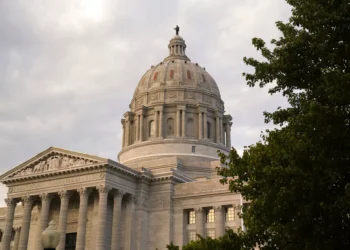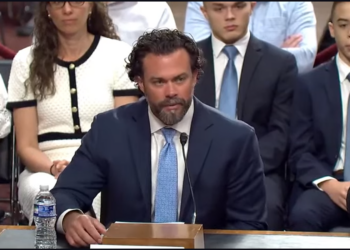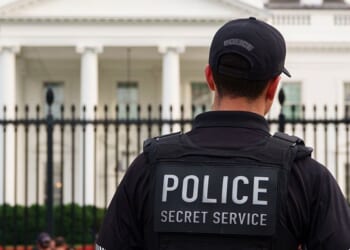President Grover Cleveland certainly recalled our first president’s warning in his Farewell Address and took George Washington’s admonition to avoid entangling alliances in dealing with other nations. During Washington’s two terms, the world had been rocked by the French Revolution — our brethren in arms during our own fiery beginning — conflict in the Holy Roman Empire and Russia, and he knew the young nation was not prepared to intervene. After all, our nation was only six years old when the French Revolution erupted and our first form of government, the Articles of Confederation, had failed. The memory of the Founders gathered in Philadelphia in 1789 — with George Washington presiding — amidst the upheaval remained a strong memory for the future first president.
Cleveland understood that the last quarter of the 19th century was also a time of world upheaval. When pushed to expand territorial control and enter into alliances, he paused to reflect. First, he pulled the Frelinghuysen-Zavala Treaty from the Senate agenda since the treaty, allowing the U.S. to construct a jointly owned canal across Nicaragua, seemed unwise. Ever cautious, Cleveland did help broker the issues of U.S. fishing rights off the Canadian coast and calm boundary issues between Alaska and British Columbia focused on the diminishing seal population.
Well aware of the increasing need for a U.S. presence around the world during this second wave of imperialism, Cleveland stood toe to toe with Germany when it attempted to install a puppet government in Samoa that would have lessened the U.S.‘s treaty rights to a naval base. But, it was his action toward Great Britain regarding the Venezuelan-British Guiana that gained international attention. Britain claimed the Orinoco River and with it a major interior trading region vital to Venezuela, and when the Latin American country asked for U.S. assistance, Cleveland stepped forward. Issuing a “twenty-inch gun” missive, he threatened war and actually sent U.S. naval vessels to the region. Britain backed down and agreed to arbitration. Cleveland gained praise for “reminding” the rest of the world that the Monroe Doctrine would guide U.S. foreign policy in the western hemisphere.
And, it would.
During his two nonconsecutive terms, he would send Marines to Colombia’s Panama region to end a rebellion and U.S. troops to Rio de Janeiro to break a blockade. He avoided taking a strong position in Cuba other than urging Spain to modify its policies and allow for eventual independence of the Caribbean nation. When Congress moved to recognize Cuban independence in opposition to the president, the president argued that Congress was moving into his realm of authority.
Hawaii loomed as a major issue during Cleveland’s second term. In the intervening years between Cleveland’s first and second terms — the administration of Benjamin Harrison — it appeared that Harrison had joined, at least via benign neglect, the major sugar producers in Hawaii in “encouraging” a revolution to overthrow the monarchy. Cleveland attempted to once again broker a peaceful solution. But, when the sugar producers threatened armed conflict and the queen stood firmly on her promise to behead the revolutionaries, Cleveland backed away and left the issue for a future administration to solve. In 1900, McKinley would sign a congressional resolution making Hawaii a U.S. territory.
How did Grover Cleveland face defeat in 1888 only to regain the presidency in the 1892 election?
Cleveland was renominated by the Democratic Party, but he faced strong opposition from the Republicans who had raised a $3 million war chest for their candidate Benjamin Harrison, the quiet former Civil War general and the grandson of former U.S. President William Henry Harrison. The candidate had served in the U.S. Senate, and both he and Cleveland focused their campaigns on issues. Harrison focused on the big-vote states and quietly reminded voters that Cleveland had denied pension increases to Civil War veterans. Cleveland campaigned on his reform measures and his tariff reduction, but at the end of the day, Cleveland had won the popular vote — with his home state — but Harrison had garnered the electoral vote, 233 to 168. Additionally, the Republicans gained control in both houses of Congress.
The next president of the United States would be the former senator from Indiana, Benjamin Harrison.
















